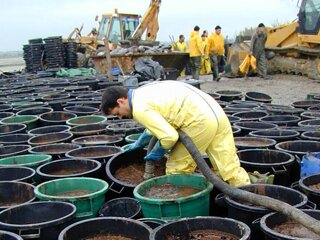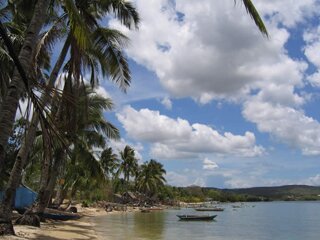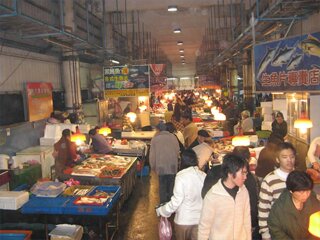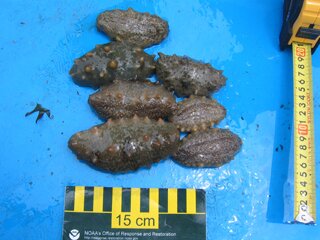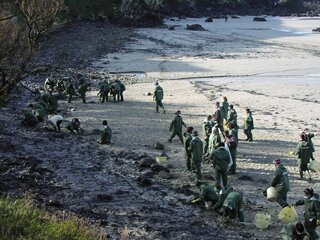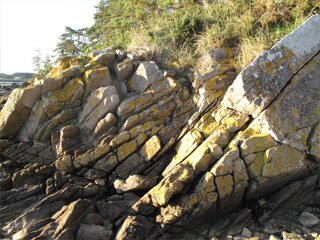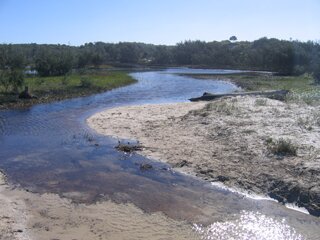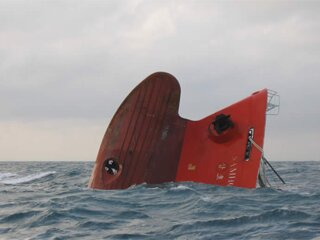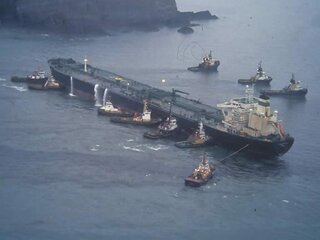Documents & Guides
Explore a variety of topics about marine spills, response and compensation matters in the pages below.
Each topic and area of interest provides access to more detailed documentation that is freely downloadable.
This includes our 18 Technical Information Papers which are fully illustrated with photos and diagrams and are available in several languages.
Alternative Fuels
What are the emerging alternative fuels and their associated risks, hazards, damages and liabilities?
Compensation for Ship-source Marine Oil Spills
What legal arrangements and sources of compensation are available for a spill from a ship?
Disposal
What planning and waste management systems need to be put in place to reduce the volume of oily waste for treatment or disposal?
HNS
What are the specific chemical response strategies for responding to a Hazardous and Noxious Substance spill, and what are the potential effects on human and marine life?
Contingency & Response Planning
What information is needed for an effective oil spill contingency plan? How can aerial observation and protective strategies assist with response operations?
Economic Effects
Which industries might suffer temporary economic losses and loss of market confidence?
Fate of Oil Spills
What happens to oil in the marine environment over time when spilled at sea? How do different factors such as volume and physical and chemical properties affect the fate of oil spills?
Explore the Resources
Comparative costs of low technology shoreline cleaning methods (1999)
This paper examines the trends in costs associated with the various low technology shoreline clean-up methods that were used in the response to the SEA EMPRESS incident, by drawing on information gathered during the response and the subsequent claims for compensation from the local government councils involved.
Categories: Response Techniques, Compensation, Papers
The cost of oil spills from tankers: An analysis of IOPC Fund incidents (1999)
The 1971 and 1992 International Oil Pollution Compensation Funds ("IOPC Funds") provide compensation to the victims of oil spills from tankers in countries which have ratified the 1971 and 1992 Fund Conventions.
Categories: Compensation, Papers
Admissibility of claims for compensation for environmental damage under the 1992 Civil Liability and Fund Conventions (2001)
The definition of Pollution Damage in the 1992 Civil Liability and Fund Conventions provides that "compensation for impairment of the environment other than loss of profit from such impairment shall be limited to costs of reasonable measures of reinstatement actually undertaken or to be undertaken".
Categories: Compensation, Papers
Factors affecting the cost of oil spills (2002)
The NAKHODKA and ERIKA oil spills in Japan and France, respectively, have once again focused the attention of politicians, regulators, the media and claimants on the potentially high cost of such events and the adequacy of the current international compensation arrangements.
Categories: Compensation, Papers
Facilitating the speedy payment of oil spill compensation claims Under the CLC and Fund Convention (2002)
The prompt settlement of claims for compensation following oil spills from tankers is in everyone's interests, especially those who have incurred clean-up costs, had their property contaminated or suffered economic losses.
Categories: Compensation, Papers
Factors that determine the cost of oil spills (2003)
The NAKHODKA and ERIKA oil spills in Japan and France, respectively, have once again focused attention on the potentially high cost of such events and the adequacy of the current international compensation arrangements. This prompted a study by the International Group of P&I Clubs of the costs of 360 oil spills occurring outside of the USA between 1990 and 1999.
Categories: Compensation, Papers
Compensation for environmental damage caused by oil spills: an international perspective (2006)
Compensation for clean up costs and damages caused by oil spills from tankers is governed in many maritime nations by two International Conventions, the Civil Liability Convention (CLC) and the International Convention on the Establishment of an International Fund for Compensation for Oil Pollution Damage (FC).
Categories: Compensation, Damage Assessment, Papers
Approaches to environmental damage claims (2009)
This paper examines the differences between the approaches to environmental damage compensation under the US 1990 Oil Spill Pollution Act and the international regime.
Categories: Environmental effects, Compensation, Damage Assessment, Papers
Weighing up the risks and costs (removal of oil and chemicals from sunken wrecks) (2009)
Almost one in every five incidents attended by ITOPF in the last five years has involved sunken wrecks and the removal of oil or chemicals from below the sea surface or at least consideration of the feasibility of such operations.
Categories: HNS, Oil, Compensation, Papers
The Sea Empress oil spill in context (1998)
The grounding of the Sea Empress in February 1996 followed the wrecks of the Braer in January 1993 (84,700 tonnes of oil spilled) and the Torrey Canyon in March, 1967 (119,000 tonnes). Volume of oil lost, however, is not necessarily the most important factor in determining the seriousness of a particular incident.
Categories: Spill Response, Papers


